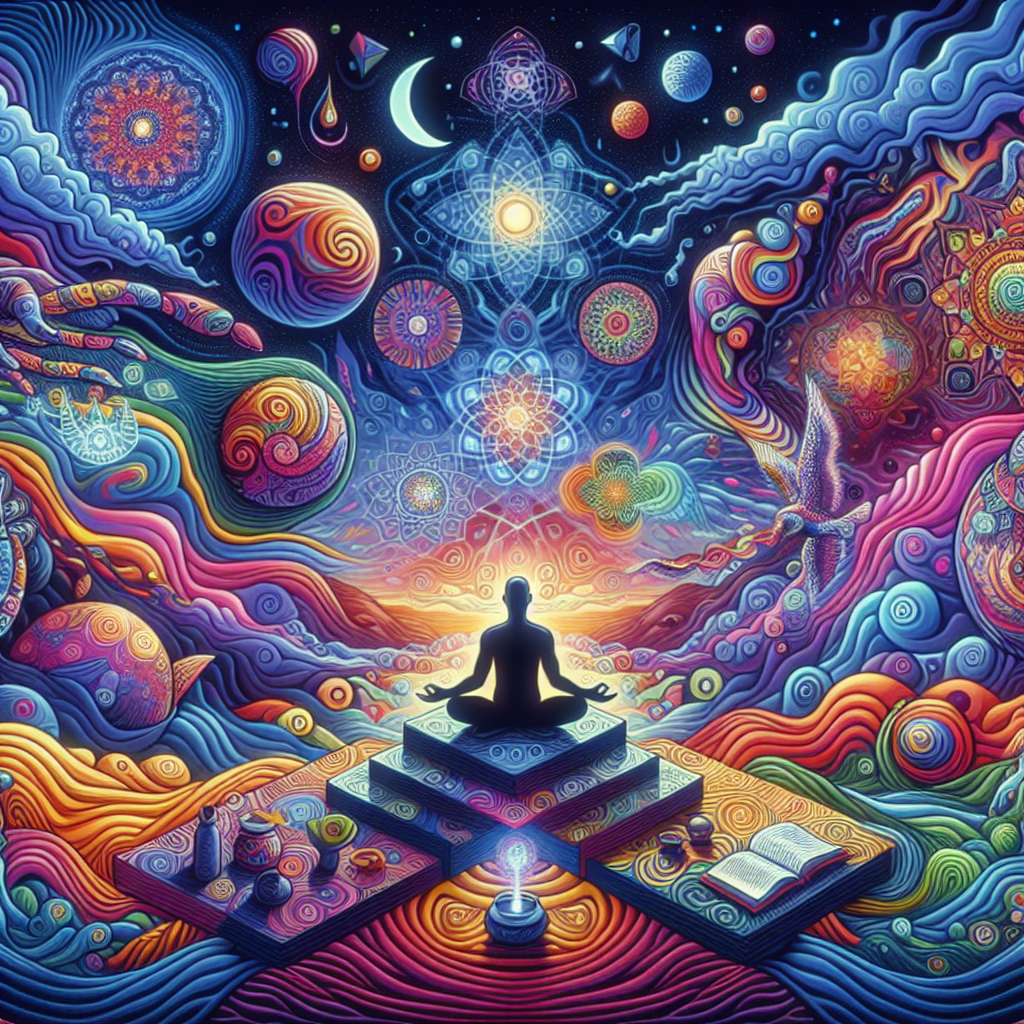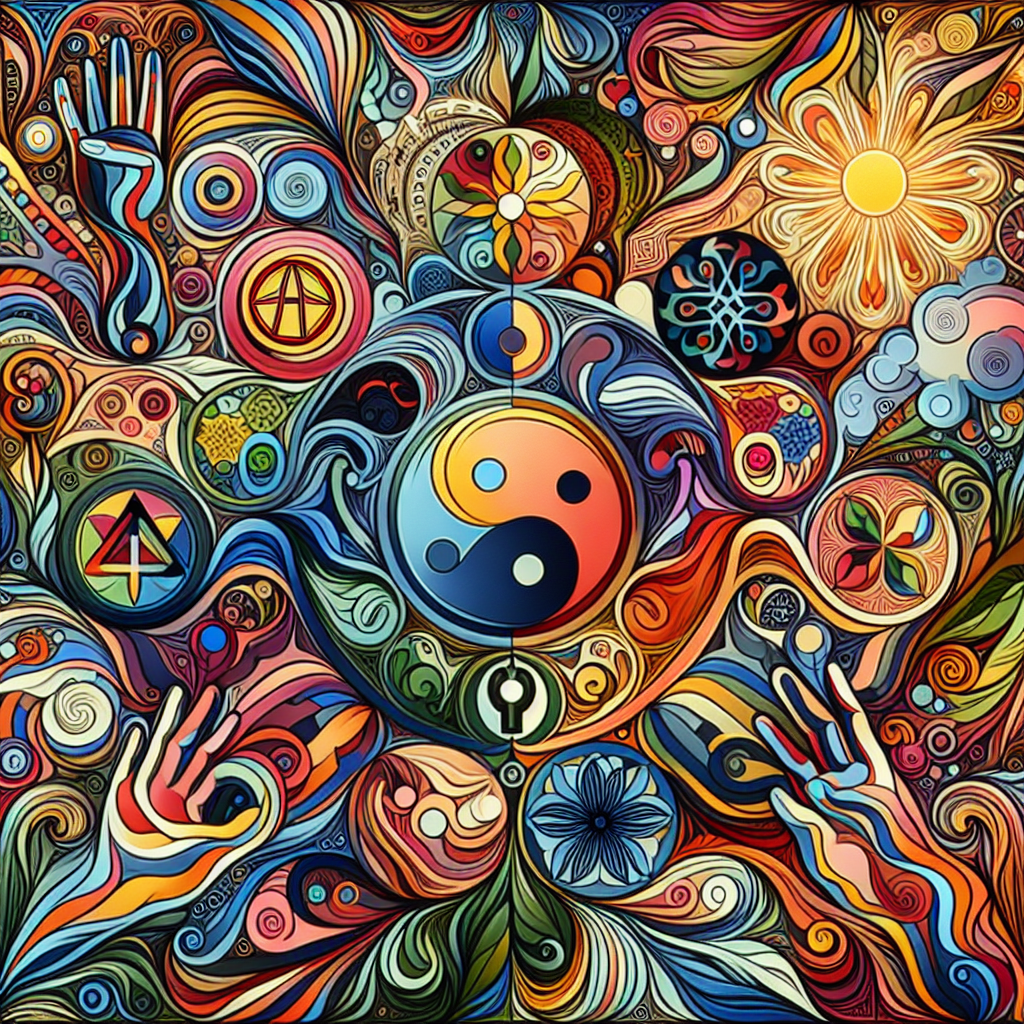The Role of Psychedelics in Holistic Well-Being

Discover more about the role of psychedelics in holistic well-being. Uncover how these substances can potentially enhance your overall health and wellness. Visit My Vibrant Vitality now to learn more.
Exploring the Therapeutic Potential of Psychedelics in Holistic Well-Being
The role of psychedelics in holistic well-being is a topic that has been gaining significant attention in recent years. This is largely due to a growing body of research suggesting that these substances, when used responsibly and under the guidance of a trained professional, can have profound therapeutic benefits.
Psychedelics, such as psilocybin (found in magic mushrooms), LSD, and ayahuasca, have been used for centuries in various cultural and spiritual practices. However, it is only in the last few decades that scientists have begun to explore their potential for treating a range of mental health conditions, including depression, anxiety, and post-traumatic stress disorder (PTSD).
The therapeutic potential of psychedelics lies in their ability to induce altered states of consciousness. These experiences can lead to profound changes in perception, mood, and thought patterns, which can, in turn, lead to significant shifts in one’s understanding of oneself and the world. This can be particularly beneficial for individuals struggling with mental health conditions, as it can provide them with new perspectives and insights that can help them overcome their challenges.
For instance, research has shown that psilocybin can help reduce symptoms of depression by promoting a sense of connectedness and unity. This can help individuals break free from the cycle of negative thinking that often characterizes this condition. Similarly, studies have found that ayahuasca can help individuals with PTSD by allowing them to confront and process traumatic memories in a safe and supportive environment.
However, it’s important to note that the use of psychedelics in therapy is not about seeking a quick fix or a magic bullet. Rather, it’s about facilitating a deep and transformative process of self-discovery and healing. This is where the concept of holistic well-being comes into play.
Holistic well-being is about more than just physical health. It encompasses all aspects of our lives, including our mental, emotional, and spiritual well-being. It’s about recognizing that all these aspects are interconnected and that in order to truly thrive, we need to take care of all of them.
In this context, psychedelics can be seen as powerful tools for promoting holistic well-being. By inducing profound changes in consciousness, they can help individuals gain a deeper understanding of themselves and their place in the world. This can lead to increased self-awareness, improved emotional regulation, and a greater sense of purpose and meaning in life.
Moreover, the use of psychedelics in therapy can also promote a greater sense of connection and empathy towards others. This can lead to improved relationships and a greater sense of belonging, which are key components of holistic well-being.
In conclusion, while the use of psychedelics in therapy is still a relatively new and controversial field, there is a growing body of evidence suggesting that these substances can have profound therapeutic benefits. By promoting a deeper understanding of oneself and a greater sense of connection to others and the world, they can play a significant role in promoting holistic well-being. However, as with any therapeutic intervention, it’s important that their use is guided by trained professionals and based on a thorough understanding of their potential risks and benefits.
The Impact of Psychedelics on Mental Health and Spiritual Growth

The role of psychedelics in holistic well-being is a topic that has been gaining significant attention in recent years. This is largely due to the growing body of research suggesting that these substances, when used responsibly and under the guidance of a trained professional, can have profound impacts on mental health and spiritual growth.
Psychedelics, such as psilocybin (found in magic mushrooms), LSD, and ayahuasca, have been used for centuries in various cultures for spiritual and healing purposes. In the modern context, these substances are being explored for their potential to treat a range of mental health conditions, including depression, anxiety, post-traumatic stress disorder (PTSD), and addiction.
One of the key ways in which psychedelics can impact mental health is by inducing what researchers refer to as a “mystical” or “peak” experience. This is a state of consciousness characterized by feelings of unity, transcendence of time and space, a sense of sacredness, and deeply felt positive mood. These experiences can lead to significant shifts in perspective and behavior, which can be therapeutic for individuals struggling with mental health issues.
For instance, studies have shown that a single dose of psilocybin can lead to long-term decreases in depression and anxiety in patients with life-threatening cancer. Similarly, research on ayahuasca has found that it can reduce symptoms of depression and anxiety, and improve overall well-being. These effects are thought to be mediated by the mystical experiences induced by these substances, which can lead to a re-evaluation of one’s life and priorities.
In addition to their potential therapeutic effects, psychedelics can also facilitate spiritual growth. Many people who use these substances report experiences of ego dissolution, or a loss of the sense of self, which can lead to a greater sense of connectedness with others and the world around them. This can foster a sense of meaning and purpose, and promote a more compassionate and altruistic outlook.
Moreover, the use of psychedelics can lead to what is often referred to as “spiritual awakening” or “enlightenment”. This is a profound shift in consciousness that involves a greater awareness of one’s true nature and the nature of reality. Such experiences can lead to lasting changes in one’s values, attitudes, and behaviors, and contribute to a greater sense of peace and contentment.
However, it’s important to note that the use of psychedelics is not without risks. These substances can induce intense and sometimes distressing experiences, and their use should be approached with caution. It’s also crucial that they are used under the guidance of a trained professional, and in a supportive and safe environment.
In conclusion, the role of psychedelics in holistic well-being is a promising area of research. These substances have the potential to significantly impact mental health and facilitate spiritual growth, offering new avenues for healing and personal development. However, their use should be approached with care, and further research is needed to fully understand their effects and how best to use them for therapeutic purposes.
Psychedelics and Their Role in Enhancing Mind-Body Connection for Holistic Health
The role of psychedelics in holistic well-being is a topic that has been gaining significant attention in recent years. As the world becomes more open to alternative methods of healing and wellness, the use of psychedelics, such as psilocybin mushrooms and LSD, is being explored for their potential benefits in enhancing the mind-body connection for holistic health.
Psychedelics, also known as hallucinogens, are substances that can alter perception, mood, and cognitive processes. They have been used for centuries in various cultures for spiritual and healing purposes. In the modern context, they are being studied for their potential therapeutic effects, particularly in the field of mental health.
The mind-body connection is a fundamental aspect of holistic health. It refers to the interplay between our physical health and our mental and emotional well-being. A strong mind-body connection is believed to promote overall health and wellness, and it is this connection that psychedelics are thought to enhance.
Psychedelics work by interacting with serotonin receptors in the brain, which can result in a range of effects from heightened sensory perception to profound shifts in consciousness. These experiences can lead to increased self-awareness and introspection, which can strengthen the mind-body connection.
For instance, many people who use psychedelics report experiencing a sense of unity or interconnectedness with the world around them. This can lead to a greater appreciation for one’s physical health and a deeper understanding of the impact of mental and emotional well-being on physical health.
Moreover, psychedelics can facilitate experiences of ego dissolution, where one’s sense of self temporarily dissolves, leading to a state of heightened awareness and presence. This can help individuals to break free from ingrained thought patterns and behaviors that may be detrimental to their health and well-being.
In addition to these subjective experiences, research is beginning to uncover the potential physiological benefits of psychedelics. Studies have shown that they can promote neuroplasticity, the brain’s ability to form new connections and pathways. This can potentially lead to improved mental health, cognitive function, and overall well-being.
However, it’s important to note that the use of psychedelics is not without risks. They can cause adverse psychological reactions, such as anxiety and paranoia, particularly in individuals with a history of mental health disorders. Therefore, their use should always be under the guidance of a trained professional.
Furthermore, the legal status of psychedelics varies widely around the world, with many countries classifying them as controlled substances. This has limited the amount of research that can be conducted and has made it difficult for individuals to access these substances for therapeutic purposes.
Despite these challenges, the potential of psychedelics for enhancing the mind-body connection and promoting holistic health cannot be ignored. As our understanding of these substances continues to grow, it is hoped that they will become a valuable tool in the pursuit of holistic well-being.
In conclusion, the role of psychedelics in holistic well-being is a fascinating and complex topic. While they offer promising potential for enhancing the mind-body connection, their use must be approached with caution and respect. As we continue to explore this intriguing frontier, it is clear that psychedelics have much to offer in our quest for holistic health and well-being.